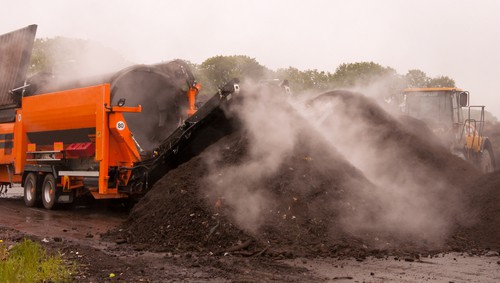
In a newly issued regulatory position statement, number 190, the Agency has moved to make it clear when it will and will not take enforcement action and when waste soils are considered waste.
The Agency document, entitled The use of manufactured topsoil for recovery operations, says that manufactured topsoil is produced by combining mineral matter and organic matter (and where appropriate, fertiliser and lime) and which provides the same function as topsoil. “Where this production involves the use of waste materials the manufactured topsoil is considered a waste and should be coded as 19 12 12 and described as manufactured topsoil.”
PAS 100
The Agency emphasises that the use of waste soil, including manufacturerd waste topsoil, would normally need to comply with an environmental permit or resitered permit extension. But, the permit will not be pursued by Agency subject to a number of factors including that the manufactured topsoil “has been produced from use of non wastes (including for example PAS 100 Quality Protocol compliant compost”. And the regulator also gives a list of wastes from which it can be produced ranging from waste chalk, sand and clays, spent mushroom compost and soil and stones from greenfield sites.
Manufactured topsoil should be used as a soil substitute for landscaping purposes, the Agency states, and not for agricultural land.
The regulator document is available as a PDF at: RPS 190







Subscribe for free